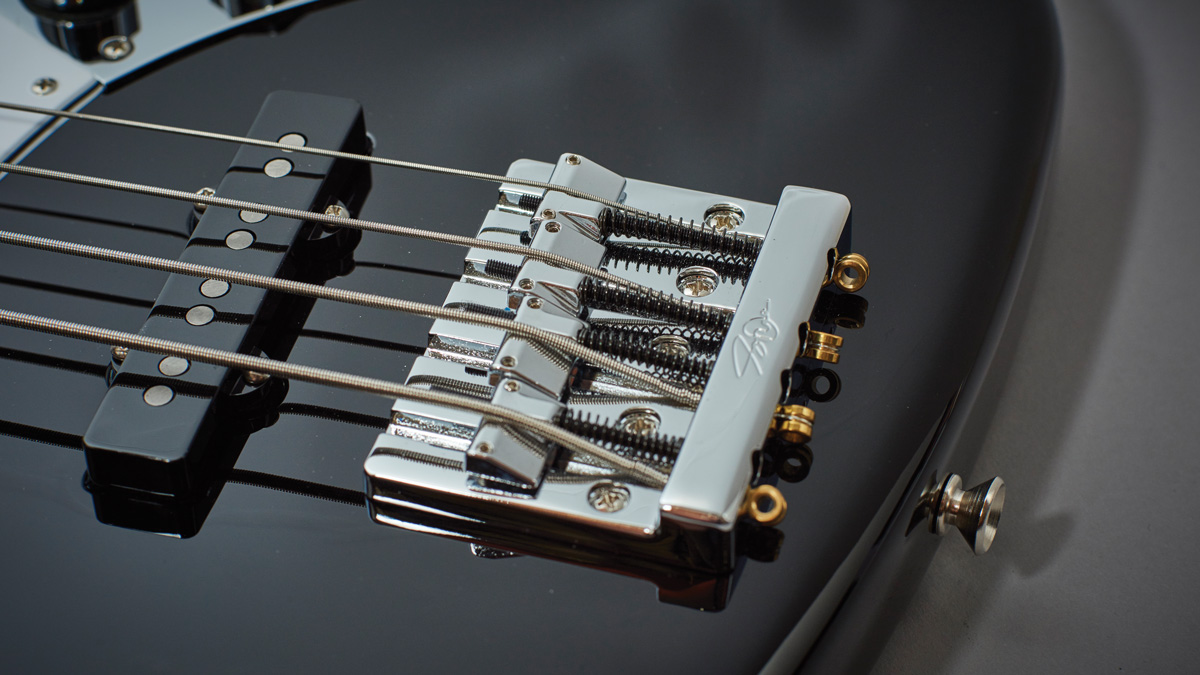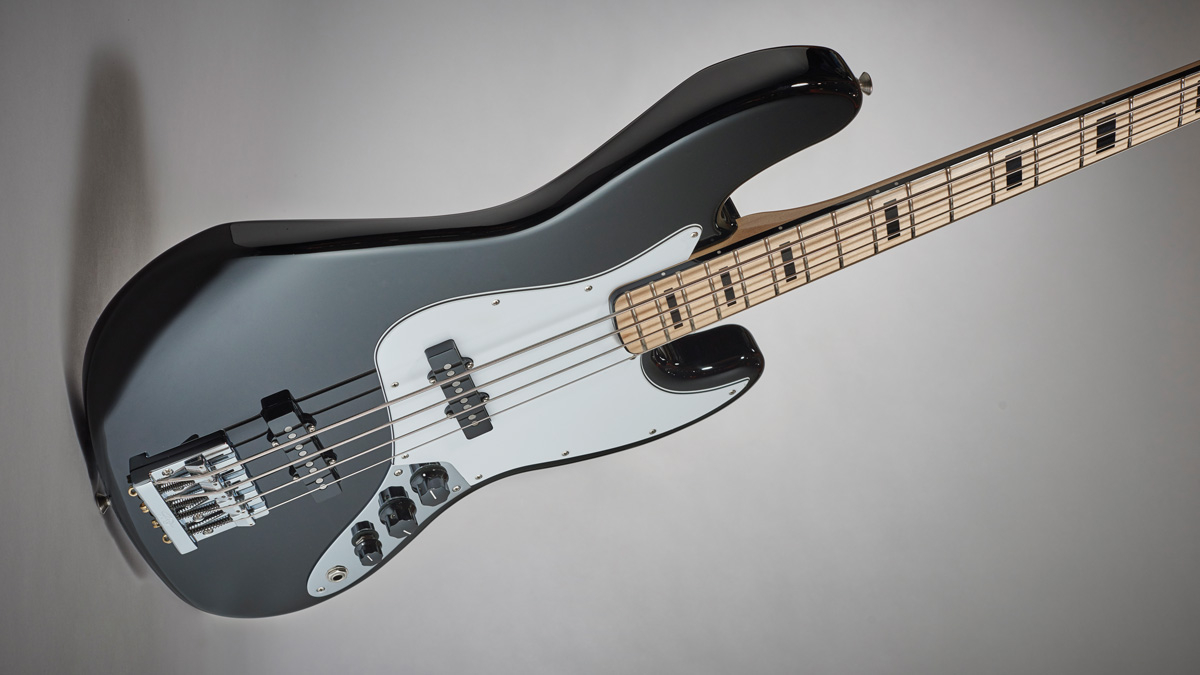MusicRadar Verdict
An exceptional Jazz which blows any preconceptions to smithereens.
Pros
- +
A standout performer with rip roaring tones and playability.
Cons
- -
Nothing.
MusicRadar's got your back
Nineteen years after its initial launch, the Geddy Lee Signature Jazz bass is here to stay - and, alongside the Marcus Miller model, is probably the most successful signature bass Fender has ever produced.
Based on Geddy’s own 70s Jazz, to which he returned in the mid-90s after an extended period using Wal basses, this Mexican version is less than half the price of the US-made model.
On first appearances, it doesn’t look any worse for it - and with the Rush bassist’s model remaining very popular, we thought it was about time we gave the current incarnation a thorough investigation.
Build Quality
Supplied in a deluxe Fender gigbag, the Geddy Jazz’s general design and shape is what you would expect from a J-Bass of this era, with black binding and block markers, open-gear elephant-ear tuners, plus a reasonable weight and balance.
In fact, without a strap, the headstock bias is significant - but even at 4.2 kilos, once placed on a strap, the bass sits proudly against the player’s body. Geddy’s signature is tastefully engraved into the High-Mass bridge, developed with him for these instruments, and printed on the back of the headstock.
The black polyester finished alder body - also available in a three-colour sunburst - has all the hallmarks of a Jazz bass, such as great upper and lower cutaways, contouring and chamfering front and back for comfort, and a three-ply scratchplate for that simple but effective look.
The black plastic volume and tone controls sit on top of the chrome control plate and operate very smoothly, with a gradual increase and decrease when turned. The slim Jazz neck (as though it would be anything else!) has a highly playable, thin C-shaped profile and comes with a urethane finish which gives it a welcoming feel.
Want all the hottest music and gear news, reviews, deals, features and more, direct to your inbox? Sign up here.
The setup is very good, neither low nor high, the 20mm string spacing works perfectly and the synthetic bone nut has been cut very well indeed. The four-bolt neck pocket is tight and secure, and the machine heads are sturdily attached and operate in a very reassuring fashion - no string slippage on this bass. The vintage vibe is kept in check with the aforementioned black neck binding, black block markers on the front of the maple neck and fingerboard, and white dots positioned in the binding.
Sounds And Playability
Much has been said about these basses over the years - but we have to say, right from the off, this bass is impressive. Even in acoustic mode, it has a biting sparkle that we’ve not heard often from a Jazz bass, and to quantify this point, we compared it with several other Jazz basses of various periods and famous connections. None of them sounded like this one.
In fact, we’d go as far to say that this may be the most resonant and vibrant Jazz bass we’ve ever played - the bounce and sparkle was outrageously forthright. All for £900!
With a signature tone, plugging in just amplified the characteristics we had already heard, but now with added low midrange, a smooth bass response and a clarity and playability that simply took my breath away.

Soloing each of the American Vintage single coil pickups shows what is on offer tonally: we were surprised with how focused the performance from each pickup was.
Sometimes, single coil units can be lacking in certain departments - warmth, brittle top end, indistinct mids - but Fender has fitted this bass with a pair of absolute crackers. Fingerstyle tones are punchy and full, while pick players will enjoy the grit and power on tap, which is very pleasing from a passive instrument.
The quality of tone and percussive performance should equally appeal to the slappers and tappers among you. Having spent some time with this bass, it is easy to see, and hear, exactly why Geddy returned to using his Jazz basses - and considering that this is the cheaper model in the range, we wonder what the results would be if we lined up 10 examples of this Mexican model and compared them against each other. Based on this specimen, this bass really can do it all.
Over the years, having heard so many players rave about these basses, we really couldn’t see what the fuss was about. Another passive Jazz, based on Geddy’s bass, what’s the big deal?
Well, we’ve seen the light, that’s for sure. We’re astonished by what an exceptional bass this is in its own right, even without the celebrity link. For the price, we think you’ll struggle to find a better instrument, or one with as much tonal guts, sparkle and all-round playability as this one. It’s everything a great bass should be, and it’s an absolute steal. Buy with confidence!
